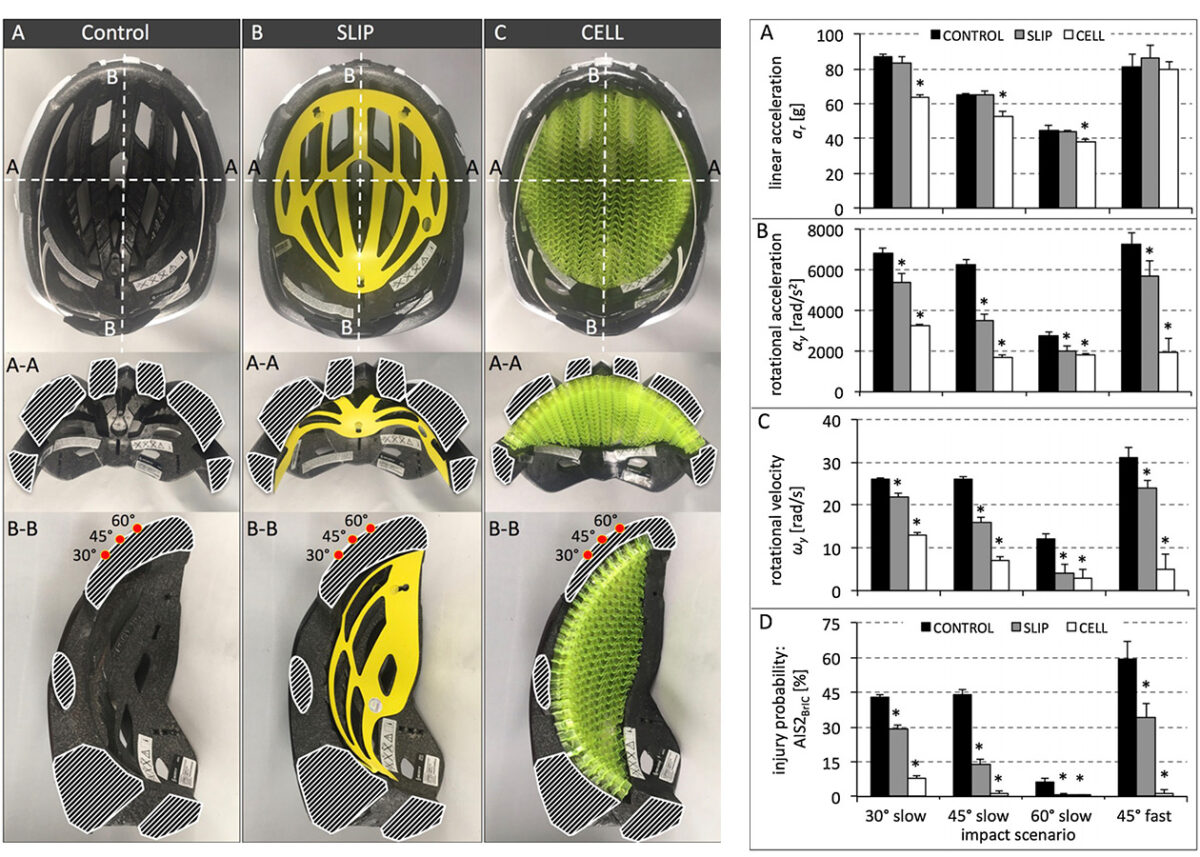
WaveCel’s “collapsible cellular membrane” showed much better results in initial lab tests than traditional foam or MIPS.
A local company has played a major role in the development of a new helmet released today by Bontrager, a bicycle part and accessory brand owned by Trek Bicycle Corporation.
Bontrager says the WaveCel technology used in their new line of helmets, “disrupts 30 years of accepted safety standards.” The company says research proves WaveCel is up to 48X more effective than common expanded polystyrene (EPS) foam at preventing concussions caused while cycling. The “collapsible cellular material” was developed by Dr. Steve Madey, an orthopedic surgeon, and Dr. Michael Bottlang, a biomechanical engineer. Madey and Bottlang work for Apex Biomedical, a company with a laboratory in Clackamas and an office in downtown Portland. Apex worked with Trek and Bontrager’s research and design teams for four years developing the material.
According to Bontrager, “WaveCel is the first advanced helmet technology ever to receive funding from the US National Institute of Health.”
Here’s more about how it works (video below the jump):
“Unlike a standard foam helmet, which is designed to protect against direct impacts, WaveCel accounts for how most cycling accidents actually happen — ungracefully, with twists, turns, and angled impacts. WaveCel absorbs energy in multiple ways. On impact, the layers of the WaveCel material move independently and flex until the cell walls crumple and then glide, actively absorbing direct and rotational energy and redirecting it away from your head. This three-step change in material structure — flex, crumple, glide — is remarkably effective at dispersing the energy from an impact. Nearly 99 times out of 100, WaveCel prevents concussions from common cycling accidents.”
BikePortland relies on financial support from readers like you.
Please join hundreds of other readers and
subscribe for $10/month or
make a one-time payment today!

Three materials studied. EPS foam on the left, MIPS in the middle, WaveCel on the right.
(Images from Accident Analysis and Prevention)
Results of laboratory testing published in Accident Analysis and Prevention (December, 2018) showed significant decrease in the risk of traumatic brain injury in helmets with WaveCel technology when compared to foam and Multi-Directional Impact Protection System (MIPS) helmets. Specifically, the WaveCel material slowed down rotational acceleration and rotational velocity — both of which are correlated with TBI.
WaveCel is exclusive to Bontrager helmets (although I won’t be surprised if it’s licensed to other brands in the future) and is currently available in four models: the XXX WaveCel Road Helmet ($299.99), the Blaze WaveCel MTB Helmet ($299.99), the Specter WaveCel Road Helmet ($149.99), and the Charge WaveCel Commuter Helmet ($149.99).
— Jonathan Maus: (503) 706-8804, @jonathan_maus on Twitter and jonathan@bikeportland.org
Never miss a story. Sign-up for the daily BP Headlines email.
BikePortland needs your support.
The post Portland researchers behind major new helmet tech launched by Trek/Bontrager appeared first on BikePortland.org.
from Latest headlines from BikePortland https://ift.tt/2TiYfh0




No comments:
Post a Comment